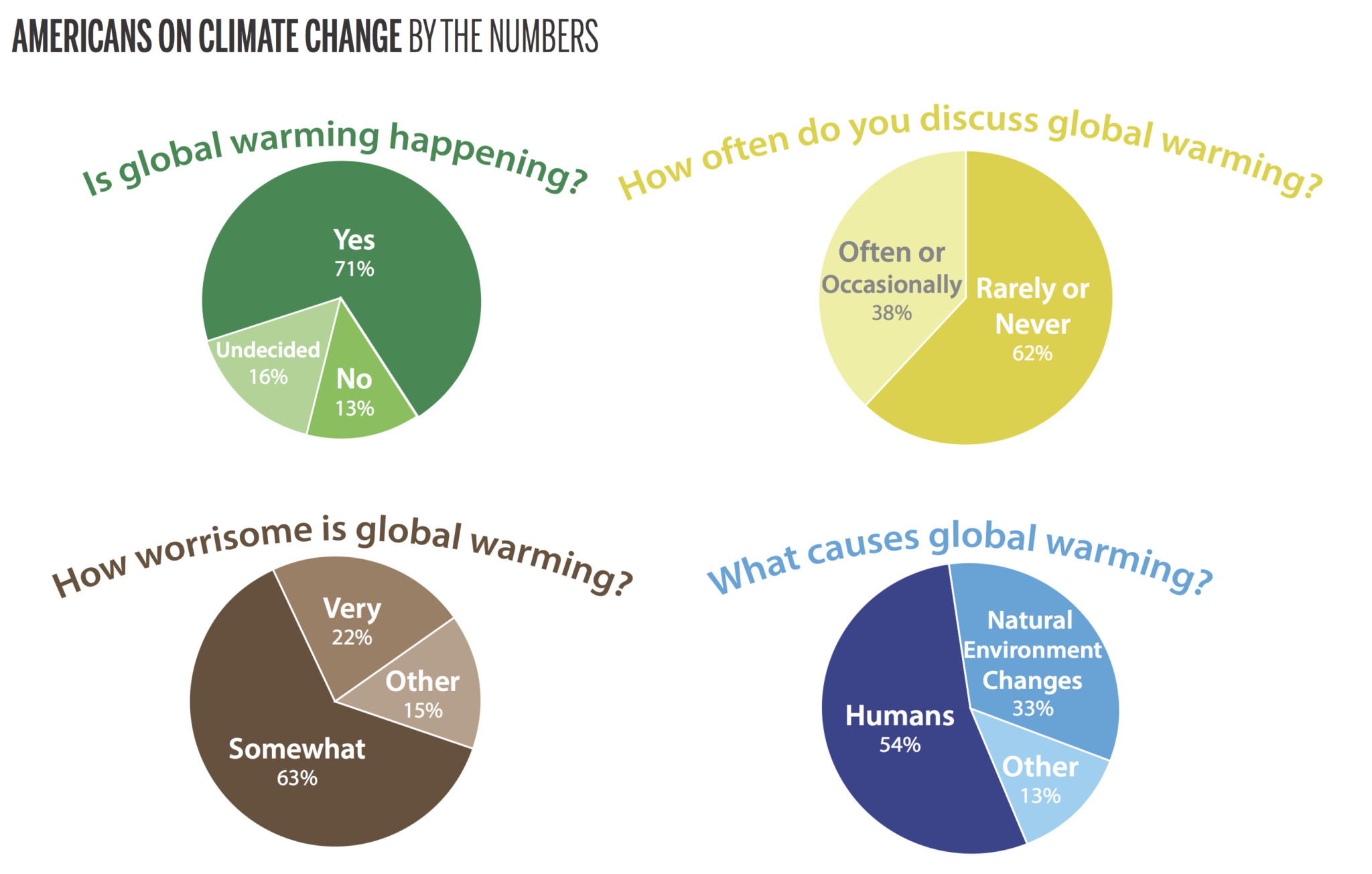
The Yale Program for Climate Change Communication released on Nov. 16 the newest edition of “Climate Change in the American Mind,” a biannual national study concerned with how Americans perceive the issue of climate change.
The study reported that the percentage of Americans who say they are “very worried” about global warming has doubled since 2015, rising from 11 percent to 22 percent. The figure is now at its highest since the YPCCC began conducting surveys in 2008. And at 71 percent, the belief among Americans that climate change is happening is also at an all-time high. As a result, Americans who recognize the existence of global warming now outnumber those who do not by more than 5 to 1.
Anthony Leiserowitz, a professor at the Yale School of Forestry and Environmental Studies and the YPCCC director, said he felt encouraged by the growing prevalence of climate change in the national conversation.
“One of the important indicators to note is that there was a big jump in Americans talking about climate change.” Leiserowitz said. “Americans are beginning to talk about it much more than they did even just six months ago. That is a good preliminary sign that some of the more impactful behaviors may be shifting as well.”
However, Leiserowitz cautioned against being overly optimistic about current trends in climate change awareness. He explained that the percentage of Americans who believe in climate change dropped by 14 percent just two years after 2008, when the previous record was set.
Edward Maibach, a communications professor at George Mason University and co-founder of YPCCC, told the News he was not surprised by the trend of increasing awareness of climate change and its detrimental effects on the environment.
“The Trump Administration has been trying hard to dismiss the relevance or importance of climate change over the past year,” Maibach said. “My sense is that their lunacy on this issue is causing more Americans to be concerned, which is precisely what the data show.”
Maibach emphasized the role politics play in determining the perception of climate change in the U.S. In addition, he noted that increased awareness does not always translate into increased action to prevent further environmental damage.
Although more Americans than ever are cognizant of the seriousness of man-made climate change and the detrimental effects of global warming, Maibach said, they often lack the initiative to take further steps to solve the problem.
“The most important behavior is for Americans to demand that our government officials do everything possible to limit climate change, and to hold them accountable if they do not act accordingly.” he said. “Our data show that lots of Americans say they will do this, but few actually do.”
According to the recent YPCCC survey, just 5 percent of Americans believe that humans will successfully reduce global warming.
Jack Schleifer ’20, a prospective environmental studies major, said he was distressed by these figures.
“Many people experience a sort of forced apathy towards issues of climate change, where they feel like they don’t have any agency towards what happens to the environment.” Schleifer said. “I know that I’ve personally felt like that. Still, I hope that people can change things, I want to believe that people can change things.”
Daniel Dager | daniel.dager@yale.edu







